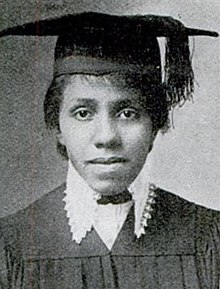
Dorothy Irene Height was an African American civil rights and women's rights activist. She focused on the issues of African American women, including unemployment, illiteracy, and voter awareness. Height is credited as the first leader in the civil rights movement to recognize inequality for women and African Americans as problems that should be considered as a whole. She was the president of the National Council of Negro Women for 40 years. Height's role in the "Big Six" civil rights movement was frequently ignored by the press due to sexism. In 1974, she was named to the National Commission for the Protection of Human Subjects of Biomedical and Behavioral Research, which published the Belmont Report, a bioethics report in response to the infamous "Tuskegee Syphilis Study.

Margaret Bush Wilson was an American lawyer and activist. Wilson broke many barriers as an African-American woman throughout her professional career.

Sue Bailey Thurman was an American author, lecturer, historian and civil rights activist. She was the first non-white student to earn a bachelor's degree in music from Oberlin College, Ohio. She briefly taught at the Hampton Institute in Virginia, before becoming involved in international work with the YWCA in 1930. During a six-month trip through Asia in the mid-1930s, Thurman became the first African-American woman to have an audience with Mahatma Gandhi. The meeting with Gandhi inspired Thurman and her husband, theologian Howard Thurman, to promote non-violent resistance as a means of creating social change, bringing it to the attention of a young preacher, Martin Luther King Jr. While she did not actively protest during the Civil Rights Movement, she served as spiritual counselors to many on the front lines, and helped establish the first interracial, non-denominational church in the United States.
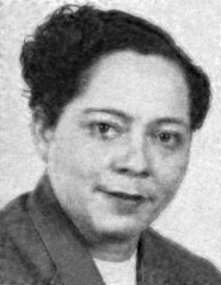
Cora Mae Brown, was the first African-American woman elected to a state senate in the United States. She won her seat in the Michigan State Senate in 1952. Brown was a Democrat who represented Detroit.

Margaret Flagg-Holmes was one of the sixteen founders of Alpha Kappa Alpha Sorority, Incorporated, at Howard University in Washington, DC. It was the first sorority founded by African-American women.
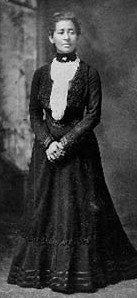
Selena Sloan Butler (1872–1964) is the founder and first president of the National Congress of Colored Parents and Teachers Association (NCCPT). President Herbert Hoover appointed her to the White House Conference on Child Health and Protection in 1929. During World War II, she organized the Red Cross' first black women's chapter of "Gray Ladies." When Congress merged the NCCPT with the National PTA in 1970, Butler was posthumously recognized as one of the organization's founders. Today, Butler is considered a co-founder of the National Parent-Teacher Association.
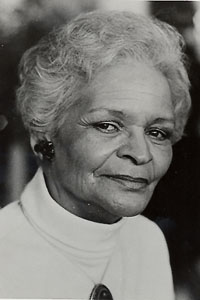
Grace Towns Hamilton was an American politician who was the first African-American woman elected to the Georgia General Assembly. As executive director of the Atlanta Urban League from 1943 to 1960, Hamilton was involved in issues of housing, health care, schools and voter registration within the black community. She was 1964 co-founder of the bi-racial Partners for Progress to help government and the private sector effect compliance with the Civil Rights Act of 1964. In 1973, Hamilton became a principal architect for the revision of the Atlanta City Charter. She was advisor to the United States Civil Rights Commission from 1985 to 1987.
Marion Vera Cuthbert was an American writer and intellectual associated with the Harlem Renaissance.

Geraldine Pittman Woods was an American science administrator. She is known for her lifelong dedication to community service and for establishing programs that promote minorities in STEM fields, scientific research, and basic research.
Precious Jewel Freeman Graham was an educator, social worker, and attorney. She was professor emeritus of social work and legal studies at Antioch College, Yellow Springs, Ohio. She was the second black woman to serve as president of the World YWCA. She was named to the Ohio Women's Hall of Fame in 2008.
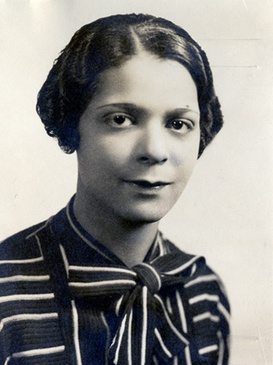
Mabel J. Byrd was a civil rights activist and the first African American to enroll at the University of Oregon. In 1988, Byrd died at age 92 in St. Louis, Missouri. Byrd requested that money be donated to a scholarship fund in lieu of a memorial service.

Mary Frances Gunner was an African American playwright and community leader based in Brooklyn, New York. She was also known as Francis Gunner Van Dunk.

Nettie Langston Napier was an African-American activist for the rights of women of color during the early part of the 20th century. She lived in Nashville, Tennessee.

Vada Watson Somerville, D.D.S. was a civil rights activist and the second African-American woman in California to receive a Doctor of Dental Surgery degree.
Katharine DuPre Lumpkin was an American writer and sociologist from Macon, Georgia. She is a member of both the Georgia Writers Hall of Fame and the Georgia Women of Achievement.

Mary Jackson McCrorey was an American educator, mission worker, and leader in the Young Women's Christian Association (YWCA).
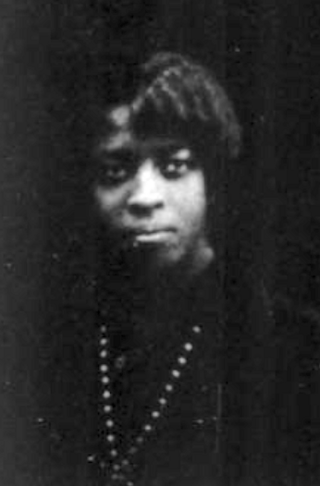
Floria Pinkney was a Progressive Era Black female garment worker and union activist and leader from Brooklyn, New York. She was the first African-American woman to hold a leadership role as an organizer within the International Ladies Garment Workers Union (ILGWU). As a legacy dressmaker, Pinkney was involved in the garment industry throughout her life.
Juanita Jane Saddler (1892-1970) had a long involvement with the Young Women's Christian Organization (YWCA) and was active in working to integrate that institution. She also served for a time as dean of women at Fisk University.
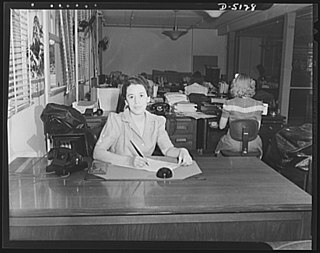
Frances Harriet Williams (1898–1992) was an American activist and civil servant. She was born in 1898 in Danville, Kentucky to Frank L. Williams and Fannie (Miller) Williams but grew up in St. Louis, Missouri. She graduated from Mount Holyoke College in 1919 and earned a master's degree in political science from the University of Chicago in 1931.
Minnie Lou Crosthwaite was an American teacher who became the first African-American woman to pass the teacher exam in Nashville's segregated school system. She later became an instructor and then registrar at Fisk University, and was influential in the social life and the education of the city's African-American community.
